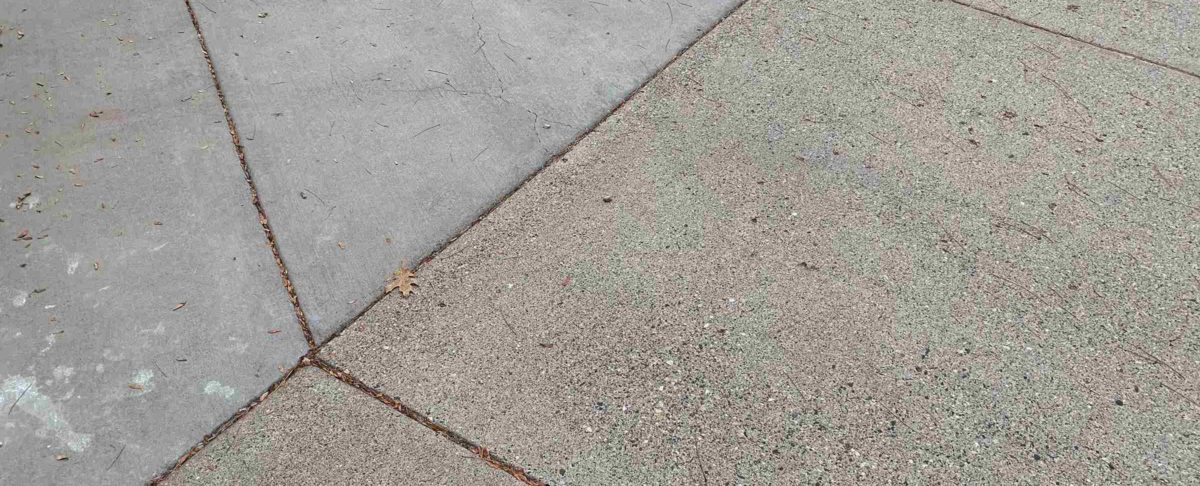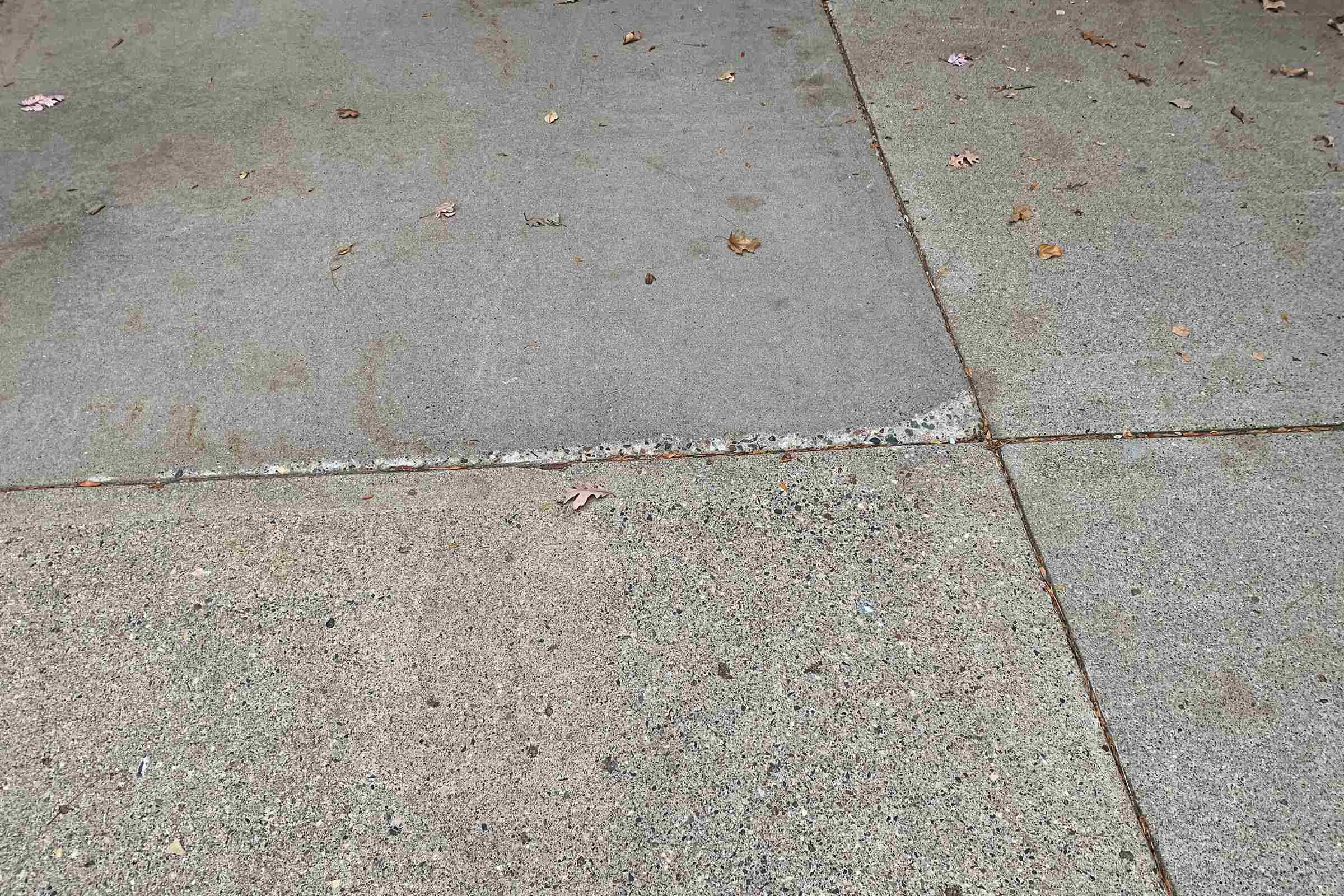Throughout the United States, you’ll find concrete in driveways for its durability and lasting aesthetic. Even though many homeowners who have this material sitting on their properties believe it can withstand almost anything, that isn’t the case.
The reality is regular concrete driveway maintenance must occur to keep it in good shape. Despite one of the best attributes of a concrete driveway being how little routine care it needs, that doesn’t mean forgoing these tasks. We’re going to discuss concrete care and maintenance tips in this guide.
Clean Concrete and Reapply Sealer
Keeping your driveway looking its best is every homeowner’s goal. Additionally, no one wants any cracking to occur. Therefore, ensuring the concrete clean whenever you see messes, spills, or dirt accumulation is essential. Then, the next best measure is reapplying a high-quality concrete driveway sealer.
Sealing is one of the best ways you can protect your concrete driveway from cracking no matter its age. So, even if you’re not working with a new concrete driveway, you can’t go wrong with concrete driveway maintenance that includes this step.
Once cracks begin showing up, they’re difficult to stop. You can prevent this from occurring by preparing for the harsh winter months starting in September. That way, the seal is down and dry before the first frost hits.
Here are some tips:
- Powerwash your entire driveway to ensure you’re removing all oils and sediment.
- Apply a high-quality concrete driveway sealer. Follow the instructions on the package regarding the application.
- During every snowfall or storm, make sure you’re shoveling. That way, no water is seeping into the concrete, freezing, and causing cracks.
- Avoid using bent, jagged, or metal shovels. They’ll tear up the surface of your concrete driveway. Instead, opt for plastic snow shovels.
NOTE: Remember, using any other sharp instruments for removing ice poses the same risk for damaging the surface of your concrete.
Ensure Proper Curing Occurs
During a new concrete driveway installation, you must understand the curing process. That way, it remains in pristine condition, and driveway maintenance is a snap for its lifetime. Proper curing is critical to the development of your driveway’s overall durability and quality.
The moisture acts as the catalyst regarding the melding of your driveway’s two primary ingredients. Therefore, if the concrete is drying too fast, the entire process will stop too soon. As a result, the appearance will be scaly or flaky, and its structure will be weak.
During the actual driveway installation, professionals will take care of how the initial curing occurs. After they leave, it’s up to you to ensure the overall quality of the concrete. Here are some times to ensure you’re contributing to the quality of your driveway:
- If you have a compact or midsize vehicle, make sure you’re not using the driveway for at least three days. You shouldn’t park on it for at least seven days if you drive an SUV, truck, or van.
- During the first winter months following its installation, avoid using any de-icing sales. Avoid using de-icing products containing ammonium nitrate or ammonium sulfate entirely.
- Avoid digging near your new concrete driveway to prevent weakening the concrete’s support grade. Any shifts will cause surface irregularities and cracking.
Look for Low Spots
Once the curing is complete, it’s time to look for low spots following the first rainfall or after power washing. Do you see puddles of water accumulating in these areas of your driveway? If so, drop a quarter in them one at a time. If the quarter doesn’t cover with water, you don’t have to worry about these spots.
However, if the quarter becomes submerged by the water, that means you’ll need to contact the installer for concrete driveway repair. At the same time, look for areas accumulating water that are larger than two to three feet in diameter. Those sections could cause potential problems, including failure or spalling in the future. Therefore, your concrete driveway installer should know about these issues, as well.
Stain Removal
Even though using a concrete driveway sealer will help prevent the absorption of stains, that doesn’t mean you have a maintenance-free driveway. Regular concrete care and maintenance involve removing gasoline, grease, oil, and other spills as soon as they happen. Otherwise, you’ll notice discoloring and deterioration occurring.
If you notice your concrete beginning to discolor, it’s possible to remove most stains using cleaning chemicals and power washing. Even though it’s possible to do this as a homeowner by renting or purchasing a machine, it’s a better idea to maintain your driveway, mainly if it’s a new concrete driveway, with professional power washing. That way, they can remove all the mold, mildew, and grime accumulating on the driveway’s surface.
How to Choose a Sealer
Part of concrete driveway maintenance is choosing a high-quality sealer. You’ll find that there are two different types. You can either seal with a “wet” or “dry” look. Even though they function similarly, there are critical differences between these two products.
About Wet Look Sealers
When using a “wet” look sealer, you’ll find that it creates a film on the surface of your concrete driveway. That way, when it dries, it leaves behind a wet appearance on its surface.
Using this concrete driveway sealer will provide surface protection from grease and oils. Even though it’s less expensive compared to other types of sealers, it requires frequent applications.
About Dry Look Sealers
Using a “dry” look sealer means you’ll be using a product that penetrates and seeps into the concrete. In doing so, it will not discolor the driveway and creates more extended protection. Because it lasts up to ten years, it usually costs more compared to the “wet” look sealer.
Choosing between the two is not only about preference but also how often you want to complete concrete driveway maintenance. If cost is also a concern, it also may not be optimal to select the “dry” look driveway sealer. However, in the long run, this concrete driveway sealer may prove the most cost-effective. Ultimately, the goal is to reduce cracking and any concrete driveway repair that may result.
Use of Heavy Equipment
Do you intend to perform excavation or building projects on your property? If so, and you need heavy equipment or trucks, avoid parking them on your driveway. You may be in the middle of building your garage or have plans to install a patio. No matter what it is, make sure your concrete driveway remains a priority.
No matter what concrete driveway options you’re using, they’re not stable enough to handle the weight of these trucks for at least thirty days following its initial installation. That includes loaders or skid steers turning on the concrete and creating track marks.
Do You See Cracks?
Even after you seal your driveway, it’s possible cracking may occur. If that’s the case, don’t ignore any cracks appearing. As soon as you notice cracks, you must address them immediately.
The main reason this is critical is, if repairs don’t occur, annual freezing and melting will cause the cracks to enlarge. That means, with the passing of each season, you’ll begin seeing weeds taking root.
Before long, you may notice that concrete driveway maintenance or repairs are no longer an option. Instead, you’ll need to resurface your entire driveway. That’s a costly mistake. Visit a hardware store or home store to pick up concrete patching products.
Prevent Cracks Before They Happen
Do you have trees or shrubs growing near your concrete driveway? The roots of these plants grow underneath the concrete and can push up against its surface. When that happens, it results in cracks and other damage.
Prevent that from happening by removing shrubs and trees from around or near your concrete driveway. If you prefer not to remove these plants, you can opt to trim their roots away. That way, you’re sure they’re not going to cause damage to your driveway or walkways.
Concrete Driveway Options
When taking into consideration the concrete driveway maintenance plan, you must develop, think about the concrete driveway options available to you. There are several different finishes from which you can choose, each with their qualities.





